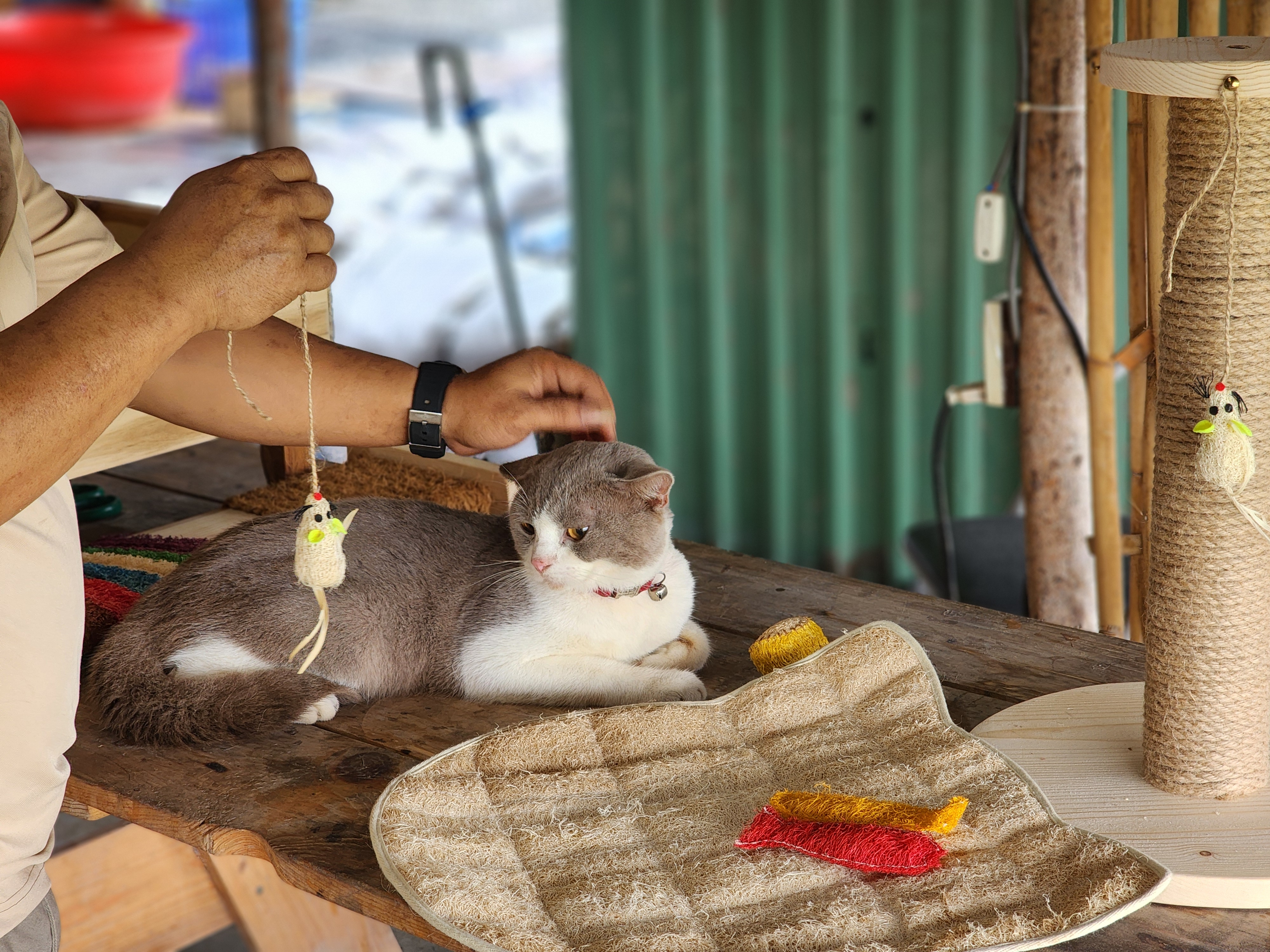Over ten years ago, Mac Van Nhan from Ho Chi Minh City handcrafted a bag made from loofah for his wife without knowing that his little DIY project would turn into a successful career producing eco-products for local and international markets.
According to the 44-year-old, his business began by making only simple products – hair clips, keychains, hats, and shoes – before evolving into a more diverse set of accessories such as souvenirs, interior decoration, household items, and pet toys.
Nhan now supplies his loofah products nationwide and also exports to the U.S., South Korea, Japan, and a number of European countries.
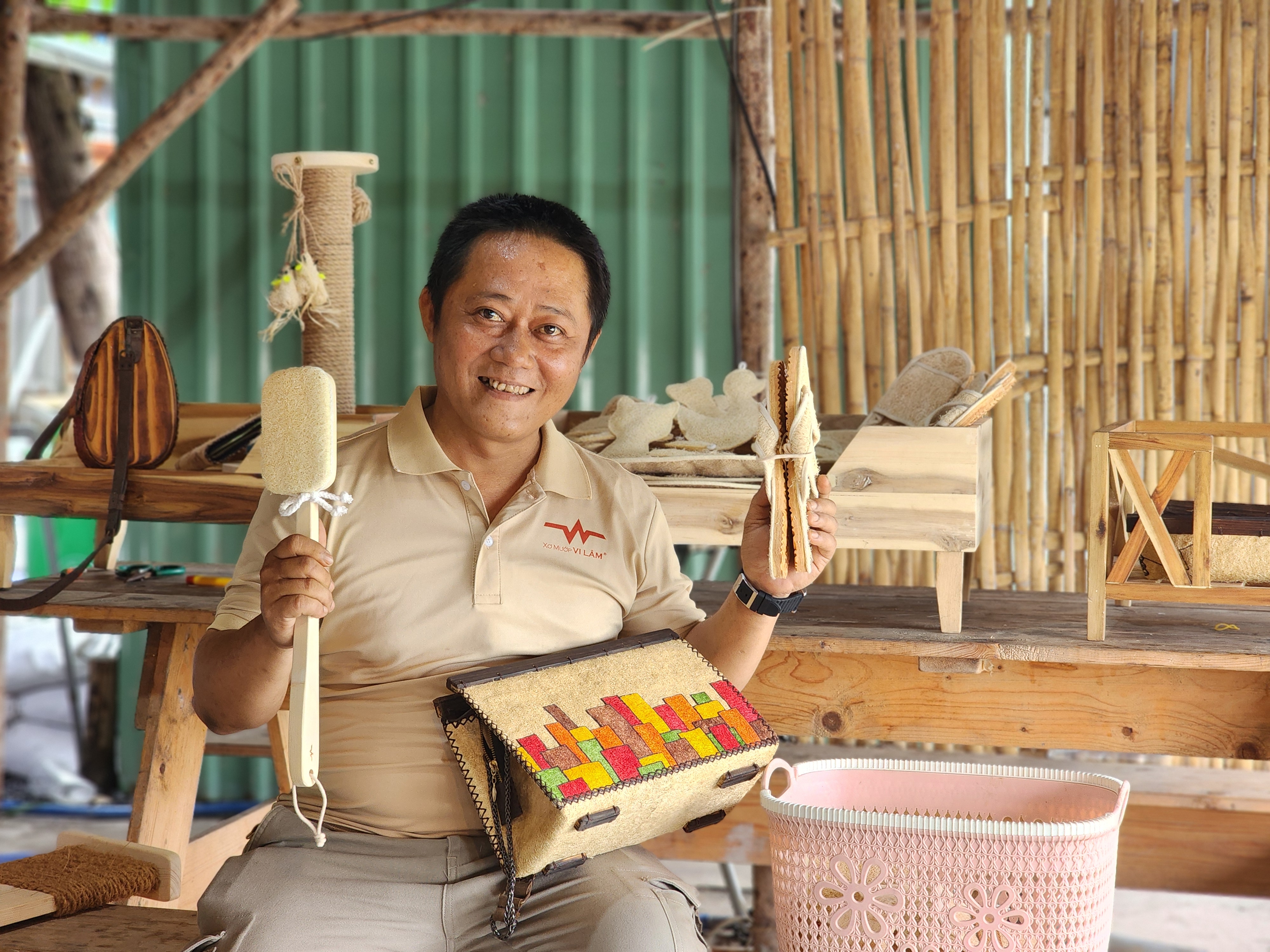 |
| Mac Van Nhan poses with eco-products made of loofah at his workshop in District 12, Ho Chi Minh City. Photo: Ngoc Phuong / Tuoi Tre News |
“The loofah itself is clean and white,” Nhan said. “It is important to preserve the material so that it does not get wet during the manufacturing process.”
Nhan’s products are natural and represent his desire to popularize Vietnamese products in global markets.
“I want to increase the value of Vietnamese agricultural products,” he said with determination.
“I hope that my loofah products become known in many countries and recognized as an agriculture product from Vietnam.”
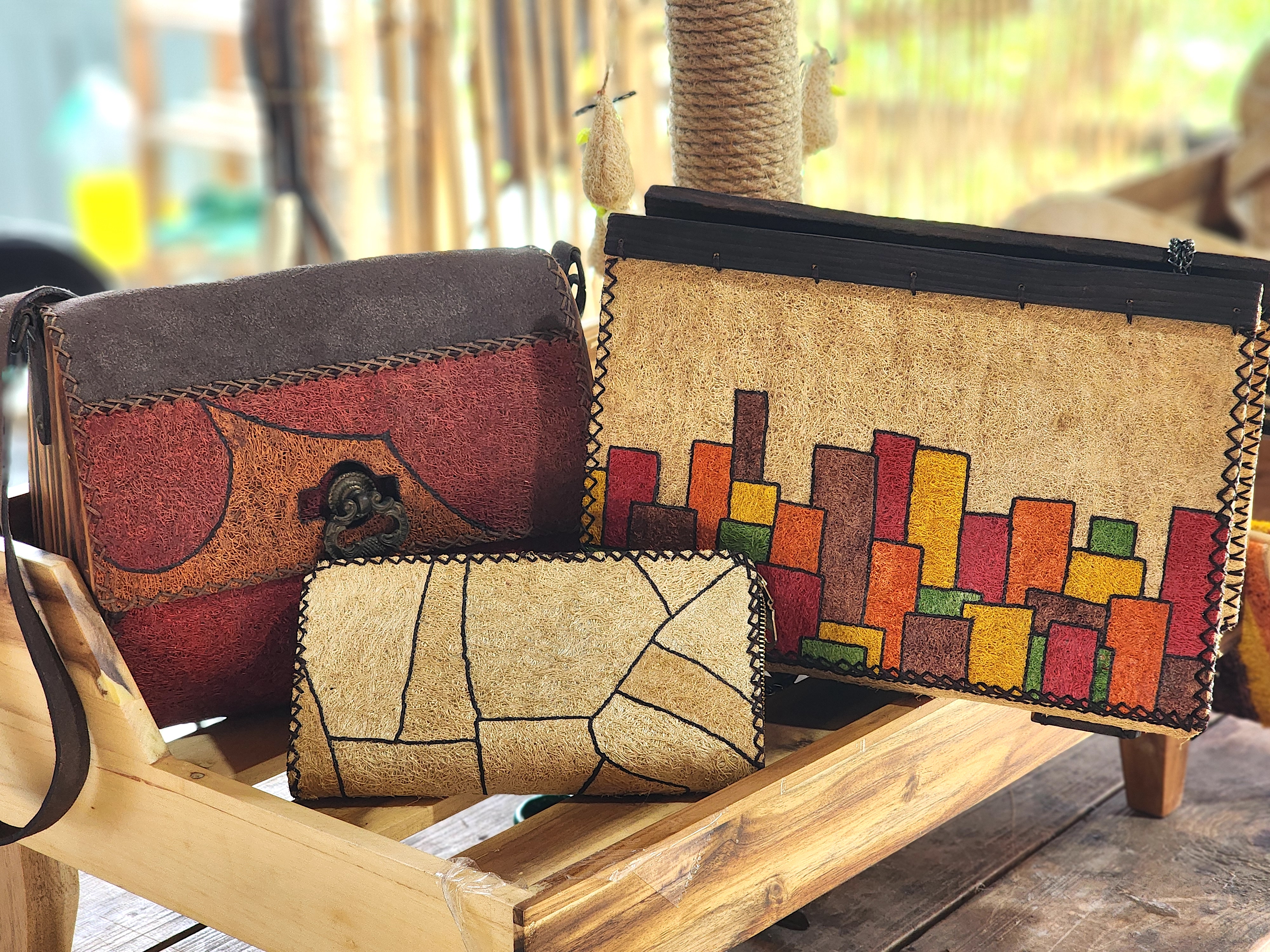 |
| Bags made from loofah at Nhan’s workshop. Photo: Ngoc Phuong / Tuoi Tre News |
At his workshop, named Xơ Mướp Vi Lâm, located at 2180/3A3 Vo Thi Thua in District 12, around 20 workers work on a multi-step process which includes removing seeds, washing the loofah, cutting it into pieces, drying, sorting, shaping, and sewing.
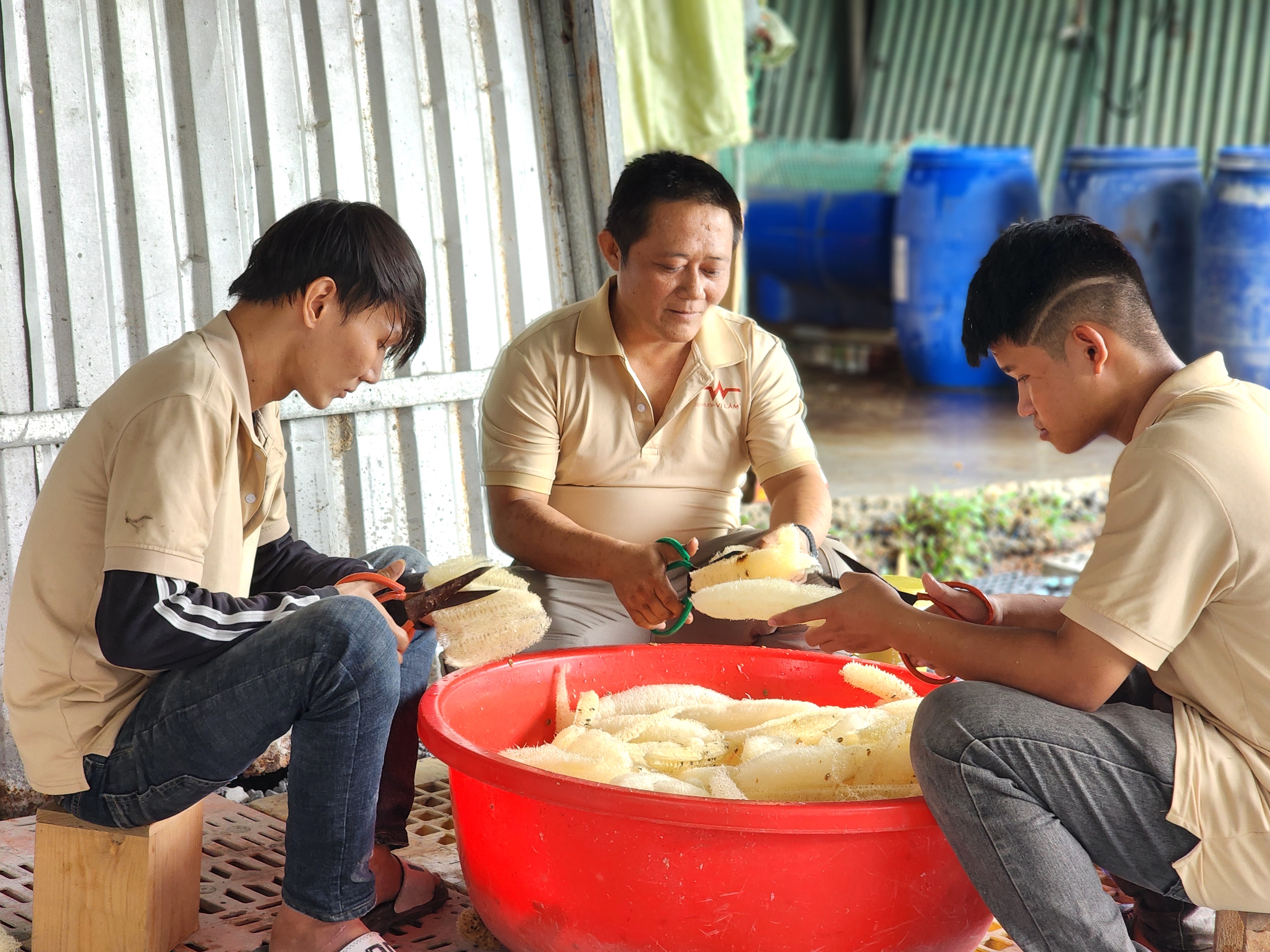 |
| Nhan (center) and his staff cut loofah into pieces before drying them. Photo: Ngoc Phuong / Tuoi Tre News |
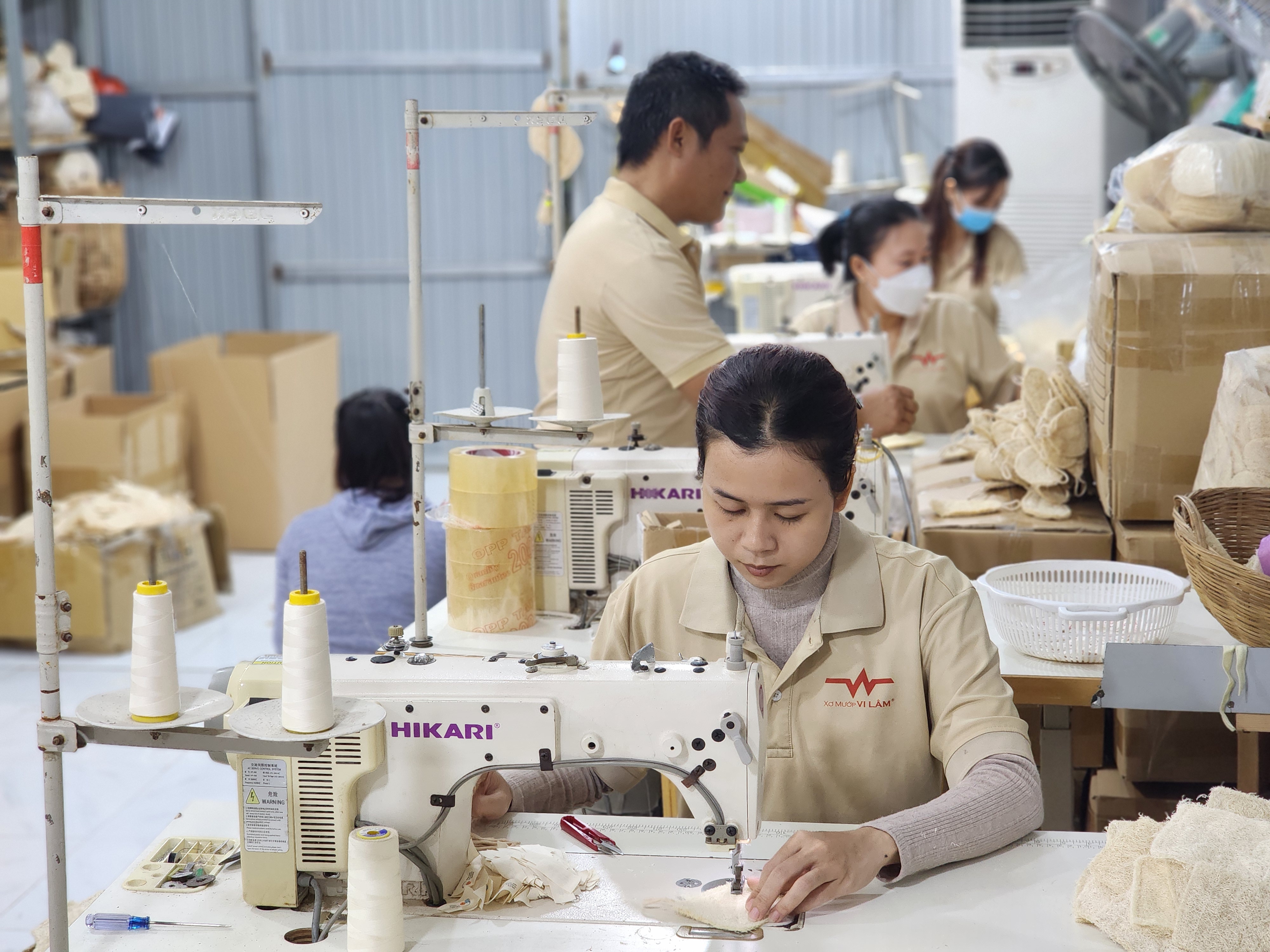 |
| Workers sew the loofah pieces into finished products. Photo: Ngoc Phuong / Tuoi Tre News |
Nhan sources his loofah from local farmers across the Central Highlands and Mekong Delta.
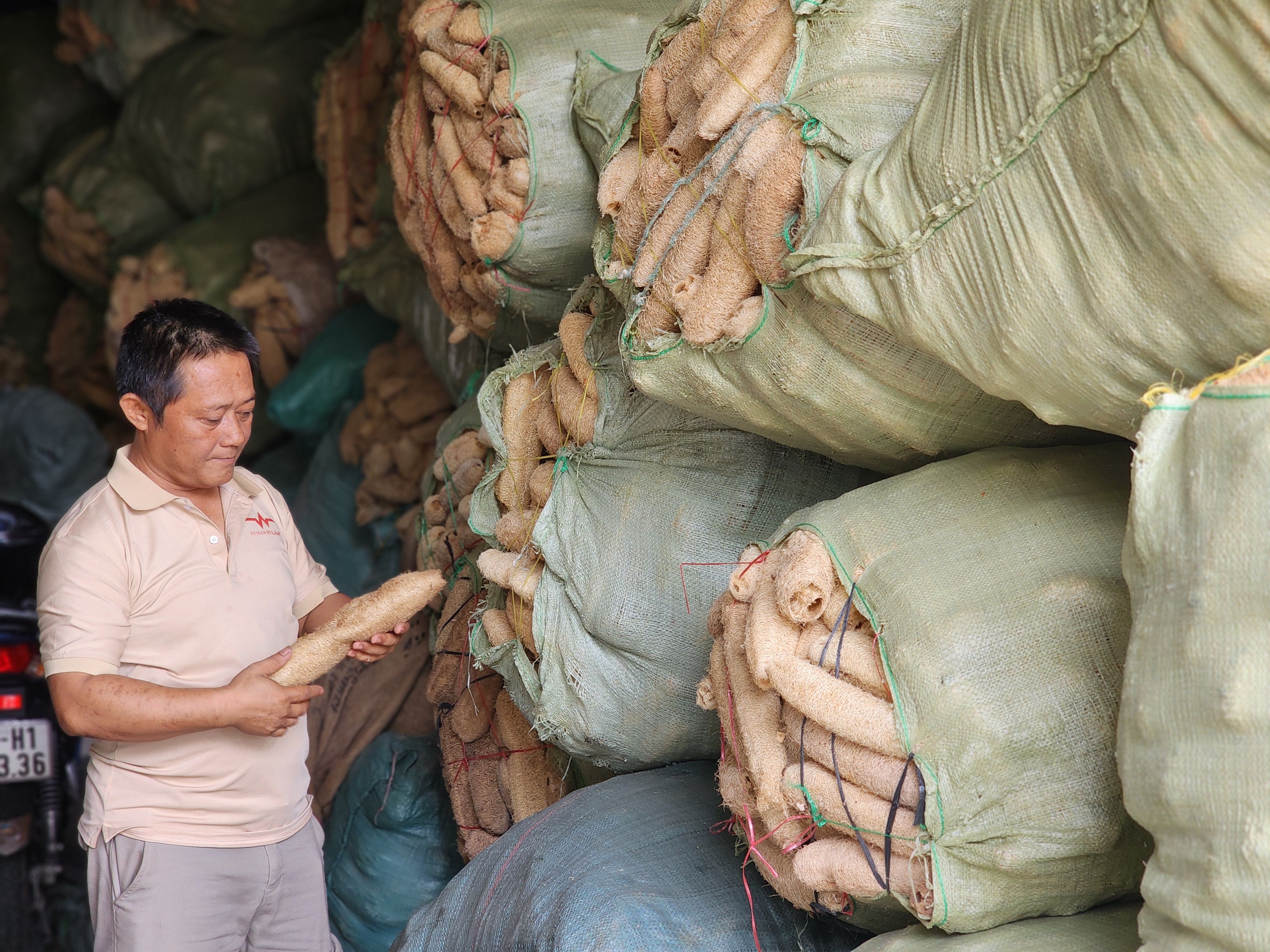 |
| Mac Van Nhan checks loofah sourced from Vietnamese farmers at his workshop in District 12, Ho Chi Minh City. Photo: Ngoc Phuong / Tuoi Tre News |
Household goods made from loofah at Xơ Mướp Vi Lâm fetch from VND20,000 to 200,000 (US$0.79 to $7.9), while handicrafts are sold from several hundreds to several millions dong.
“Loofah is quickly degradable and is able to retain moisture and create humidity, so it can be used as a plant fertilizer once it has finished its commercial uses,” Nhan said.
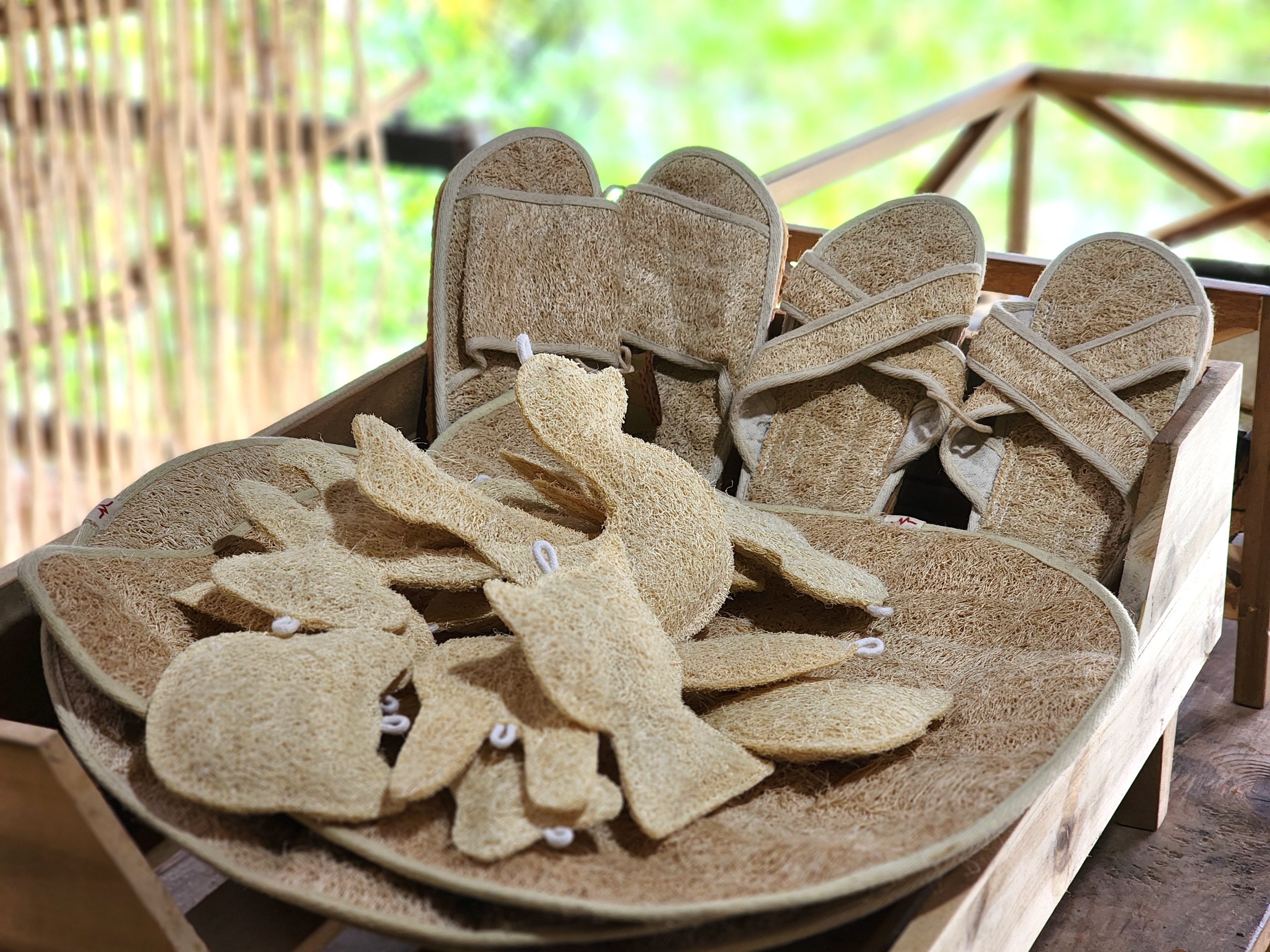 |
| Loofah slippers and other products. Photo: Ngoc Phuong / Tuoi Tre News |
Like us on Facebook or follow us on Twitter to get the latest news about Vietnam!



